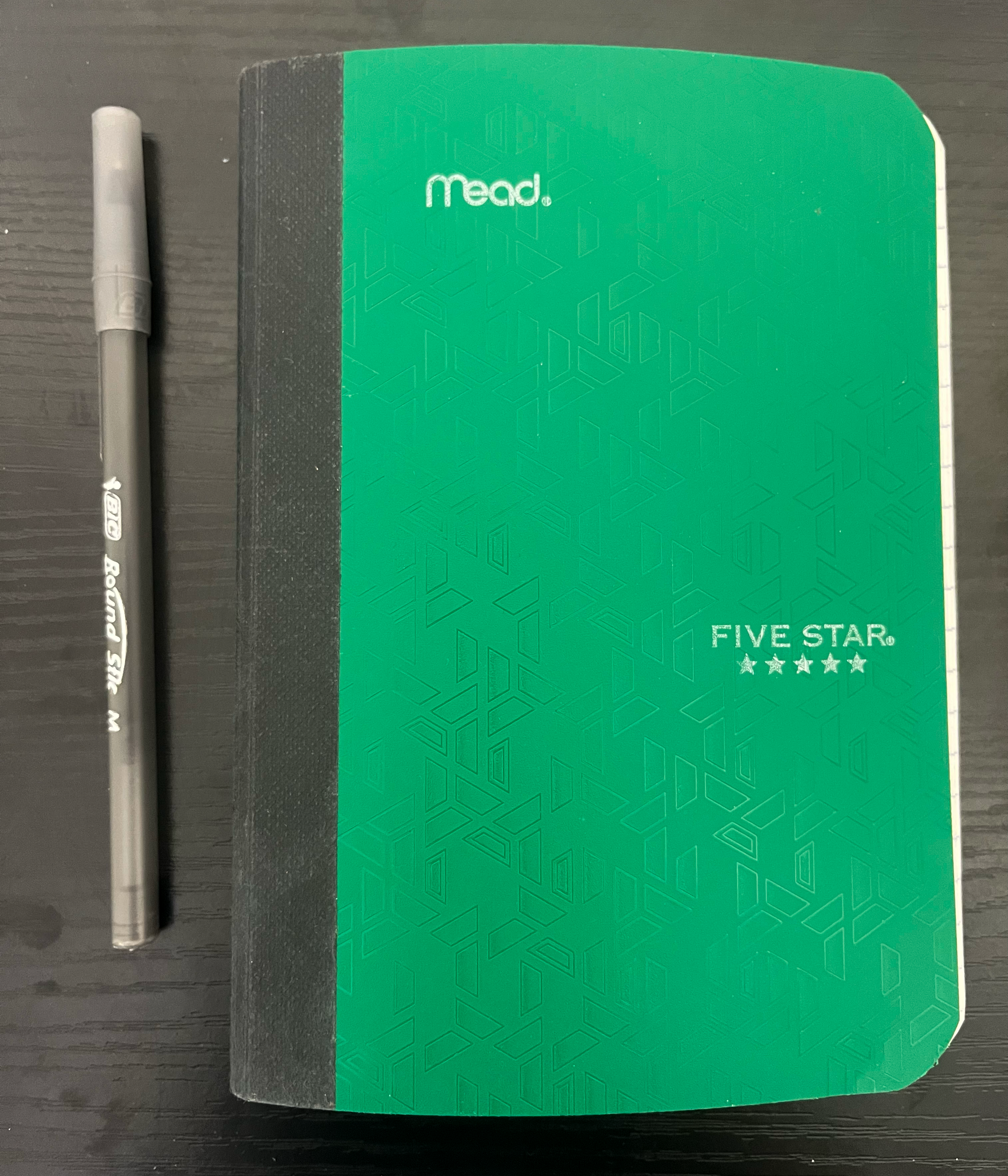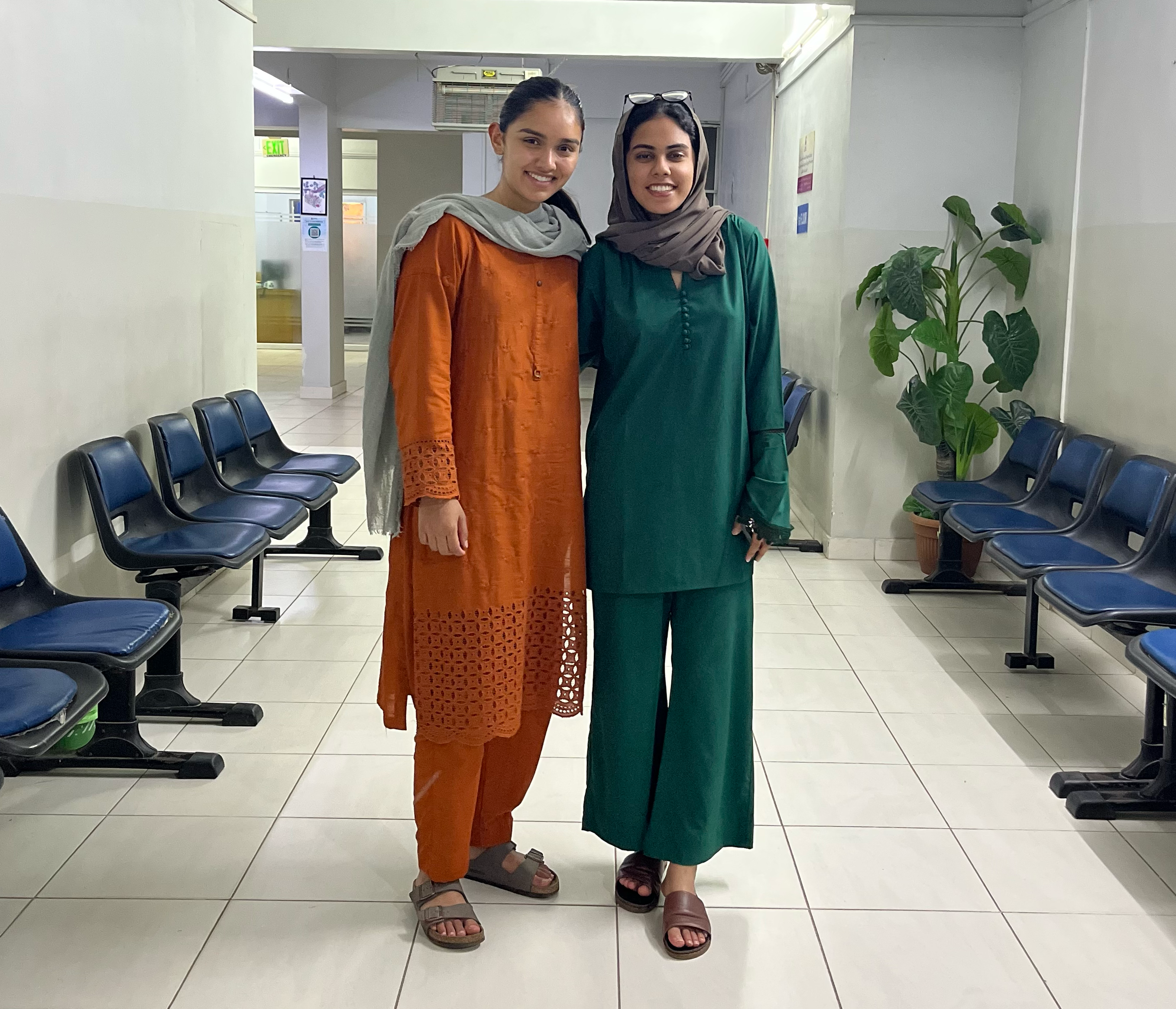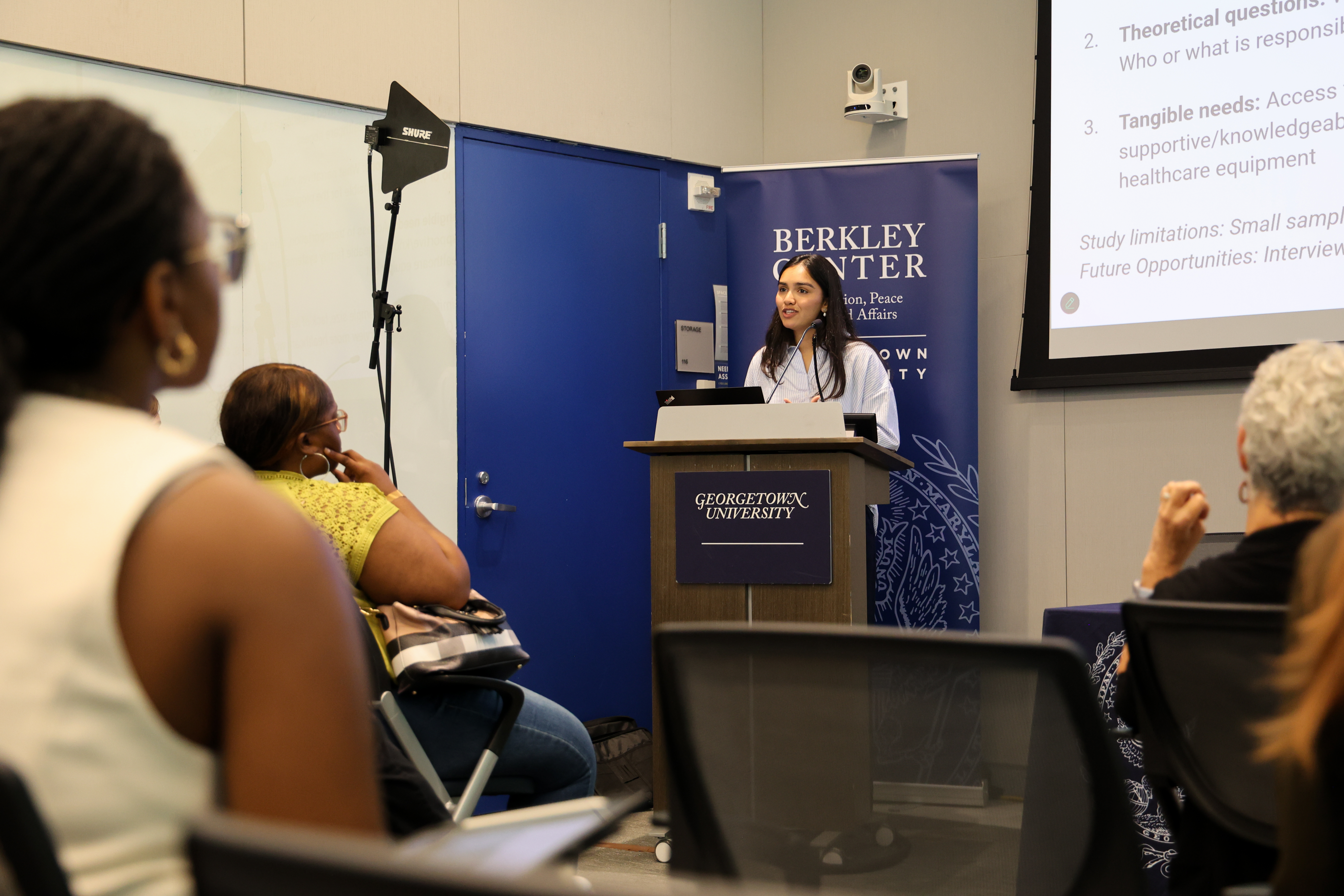
Each morning in Karachi began early for Saleem.
She rose before 7:00 a.m. and drank a cup of chai before making the long commute through traffic to a nonprofit hospital.
By 8:00 a.m., she was greeting security guards she had befriended and taking notes in her small green notebook at the gestational diabetes clinic.

Saleem’s green notebook used to record interviews and observations.
Over time, the notebook became more than a research tool. “It became a conversation starter,” Saleem said. “Women would ask what I was writing, and by the end of the month, they would wave to me when they came back for follow-up visits.”
Saleem, the recipient of the 2024-2025 Maeve Kennedy McKean Global Health Award, traveled to Karachi to study the barriers to managing gestational diabetes among low-income women. Her project explores how structural, cultural, and socioeconomic factors shape women’s ability to manage gestational diabetes, a condition that develops during pregnancy and poses serious risks to both mother and baby if not properly managed.
Why Pakistan?
Gestational diabetes affects nearly one in five women at Pakistan’s Indus Hospital and Health Network, far above the global average of 14%. For women in Karachi’s crowded neighborhoods, access to health care is complicated by cost, distance, and gender norms.
These realities motivated Saleem to focus her research on populations whose voices are often overlooked.
“Many of the women I worked with were from marginalized ethnic groups and low-income households,” Saleem said. “Their voices are often missing from academic literature.”
The project also held personal meaning for Saleem.
As a second-generation Pakistani American, she saw the fellowship as an opportunity to reconnect with her heritage while applying what she has learned at Georgetown in a real-world setting. Her motivation was further shaped by her own family’s experiences with diabetes.
Inside the Clinic
At the gestational diabetes clinic, Saleem conducted daily observations and interviews with patients over the course of a month. She developed the research protocol with her research partner, Shifan Abbasi, a medical student at Aga Khan University.
“Working with a local collaborator was invaluable,” Saleem said. “Abbasi understood the health care system and helped me navigate cultural nuances. She made it possible for me to build trust with the community.”

Saleem with her research partner, Shifan Abbasi, at the gestational diabetes clinic.
That trust revealed striking insights.
In Pakistan, illness management is not an individual task, Saleem found. Family and community ties play an important role.
One participant described the difficulty of following her diet in a multigenerational household where she could not cook separately for herself. Another spoke about the high cost of glucose test strips, which forced her to go without regular monitoring.
Saleem learned that faith was also a powerful coping mechanism.
“Religion often came up in conversations about illness,” she said. “Women would talk about trusting God to help them manage the emotional challenges that come with pregnancy and a diabetes diagnosis.”
Finding Solutions
Saleem’s work uncovered both obstacles and potential solutions.
Access to affordable testing supplies, transportation, and safe spaces for exercise were among the most pressing needs. “Even though the hospital provides free care, things like glucose test strips can still be too expensive,” Saleem said.
In addition to publishing her findings, Saleem plans to share her findings directly with the hospital to help guide practical changes, such as adding testing supplies to its inventory or developing transportation stipends for patients.
Honoring Maeve Kennedy McKean’s Legacy
The award that supported Saleem’s research is named in memory of Maeve Kennedy McKean (G/L’09), who served as executive director of the Global Health Initiative (now the Global Health Institute) and associate director of the HIV Policy Lab at the O’Neill Institute for National and Global Health Law.
Her work focused on the intersection of global health and human rights, a commitment she upheld from her early service as a Peace Corps volunteer in Mozambique to her leadership at Georgetown.

Saleem presented her research at the 2025 Global Social Justice Research Symposium.
Inspired by McKean’s legacy of pairing global health with social justice, Saleem wanted her work to have tangible benefits for the community. “I didn’t want to just extract information and leave,” she said. “I wanted to give back. That’s part of what Maeve’s legacy means to me.”
Carrying the Work Forward
Now, as she goes through more than 80 pages of field notes in her green notebook, Saleem hopes her research will influence both local and international conversations about maternal health.
“This experience reshaped how I understand care,” she said. “I learned that compassion begins with listening, with taking the time to understand the realities patients face and the context that shapes their choices. That perspective will guide me as I pursue a career that connects medicine and policy.”
